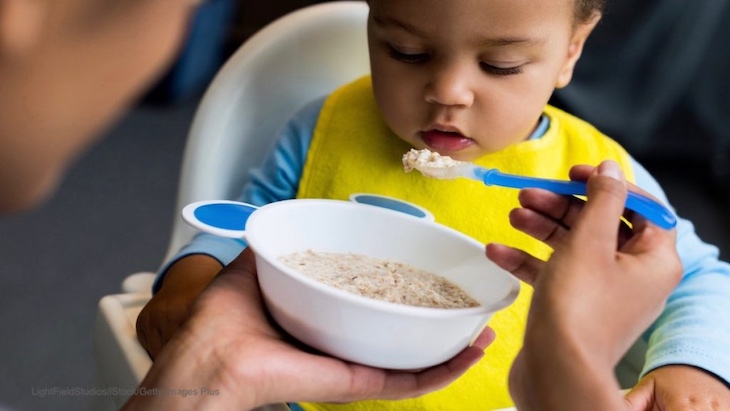After the U.S. House Subcommittee report that was issued last month about the amount of toxic heavy metals in baby food, the FDA is announcing new actions. The report found that four of the seven major baby foods made in this country have unacceptably high levels of cadmium, mercury, and lead. The remaining three corporations refused to supply information about their products.

First, a letter to industry was issued reminding manufacturers of their responsibilities when producing these foods. And the agency will put a plan into action to reduce toxic elements in foods for babies and young children to levels “as low as is reasonably achievable.”
Manufacturer’s responsibilities include considering risks from chemical hazards, including toxic elements, when conducting a hazard analysis. And industry must implement controls to “significantly minimize or prevent any identified chemical hazards requiring a control,” such as testing the final product.
The announcement states, “We share the public’s concerns for the health of America’s children, and want to reassure parents and caregivers that at the levels we have found through our testing, children are not at an immediate health risk from exposure to toxic elements in foods. The FDA routinely monitors levels of toxic elements in food, and if we find that they pose a health risk, the FDA takes steps to remove those foods from the market. Research has shown that reducing exposure to toxic elements is important to minimizing any potential long-term effects on the developing brains of infants and children.”
Many food safety experts disagree; long term exposure is the issue. While they agree there is no need for parents to panic, Consumer Reports states, “Exposure to even small amounts of these heavy metals at an early age may increase the risk of several health problems, especially lower IQ and behavior problems, and have been linked to autism and attention deficit hyperactivity disorder.
‘The effects of early exposure to heavy metals can have long-lasting impacts that may be impossible to reverse,’ says Victor Villarreal, Ph.D., an assistant professor in the department of educational psychology at the University of Texas at San Antonio who has researched the effects of heavy metals on childhood development.”
The FDA intends to issue guidance (which is not enforceable) to identify action levels for heavy metals in baby food and food for young children, and may reduce those levels in the future as research dictates. They will increase inspections and take compliance and enforcement action. The agency will also boost sampling of foods for babies and young children and will share the results with the public, and will work with government, industry, and academia to support research on safety information on toxic elements in foods for babies and young children.
For now, if you have a baby or young child, feeding them a wide variety of food is the best way to reduce their exposure to these toxic elements. For instance, while rice cereal is a good source of nutrients, it should not be the only source. Talk to your pediatrician about appropriate foods for your child.





I have 2 sons with ADHD. Both were on medication for this diagnosis. After my older son demonstrated extremely poor decision making as well as alcoholic behavior when he came off of the meds I decided to leave my younger son off the meds, his temper is at times abruptive and explosIive, he does maintain (some barely) passing grades, but he has to work extremely hard to do so. My older son has had an ovi, and other legal issues due to his behavior. I used only name brand food as I trusted them to be the very best in nutrition, and to find out they put harmful products into their food infuriates me to no end!! And now that I have learned of this I feel extremely bad of myself that I spoon fed my children their diagnosis. I feel we can’t trust anyone at all anymore.